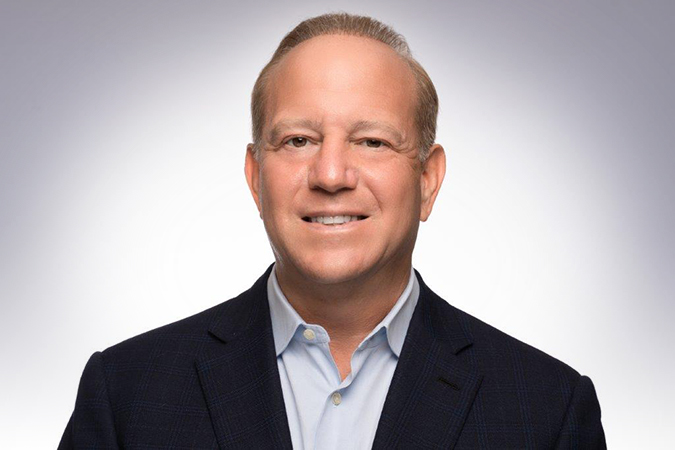At the heart of former President Donald J. Trump”™s legal defense in the two cases involving the 2020 presidential election ”“ a defense that has already been playing out in the court of public opinion ”“ is the protection of free speech under the First Amendment. But does the First Amendment allow a citizen to say just anything? In the digital age in particular, it”™s become a complex question.

The First Amendment states that “Congress shall make no law respecting an establishment of religion or prohibiting the free exercise thereof; or abridging the freedom of speech or of the press; or the right of the people peaceably to assemble and to petition the government for a redress of grievances.” In other words, the First Amendment protects your right to express your opinion without government reprisal. That”™s the whole point of a democracy. But just because Congress can”™t create a law suppressing citizens”™ free expression of their thoughts that doesn”™t mean that other sectors of our society don”™t have the ability to do so.
Private employers can set reasonable limits on employees”™ speech in the workplace and level consequences against them if standards are violated. (However, if the limits are unreasonable or the consequences disproportionate, an employee might have a case.) Similarly, schools can (and do) restrict what students say to protect learning and prevent disruption. Schools may also deny or rescind admittance to students based on what they have said outside the school environment, as in the 2017 incident in which Harvard University withdrew admission to at least 10 prospective students ”“ the so-called “Harvard 10” — who had traded racist, sexist material in a private Facebook chat.
Speech that creates harm is also not protected under the First Amendment. One of the famous examples is shouting “fire” in a populated movie theater where no evidence of even smoke exists. Similarly, defamation isn”™t protected, as the recent trial involving actors Johnny Depp and Amber Heard illustrated.
Though this seems clear-cut, the internet has complicated our understanding of the free speech protections of the First Amendment, blurring the line between truth, in the sense of everyday reality, and opinion, expressed and emboldened under the cover of anonymity. The internet has also contributed to the decline of print media, specifically local newspapers that have been the standard bearers of objective reporting and community identity.
Today, if you control the narrative by repeating your “truth” over and over again, you may seize control of public opinion ”“ unless someone offers a stronger counternarrative.
In the two cases involving Trump and the 2020 presidential election, both Special Counsel Jack Smith and Fulton County (Georgia) District Attorney Fani Willis contend that Trump and his colleagues didn”™t just question and test the election but actually tried to subvert its outcome.
While speaking out about the election would be permissible, actually attempting to manipulate various actors within that political process in order to overturn the result would not. Such a violation of federal law would amount to treason.
But what if Trump actually believed that massive fraud marred the 2020 election? What if he were championing a cause he felt to be just? Wouldn”™t that mean he was merely exercising his right to free speech and not conspiring to defraud the country? The problem for Trump and his defense team here is the public record.
Most people will remember that shortly after the 2020 election ”“ and indeed even before it ”“ Trump raised concerns and questioned the integrity of the election process in public. He stated his belief that massive fraud was going on.
While this speech may have initially been protected, as time went on, his own administration”™s Department of Justice determined there was no evidence of sufficient fraud to change the outcome of the election. Evidence to back up Trump”™s claims failed to materialize and, in consequence, court after court rejected them.
After a certain point, there was no longer any legal basis to support the notion that the election”™s results could or should be changed. Yet Trump continued to champion this idea.
That is arguably when his actions no longer constituted legitimate political discourse. By agitating to strip American voters of their rightful votes in key states like Georgia, Michigan and Wisconsin — even after his lawsuits failed repeatedly — prosecutors could reasonably argue that he crossed the line and started to commit acts against the United States.
According to the indictments, however, Trump”™s conduct was much worse than simply repeating discredited claims that undermined confidence in our democracy. He is also alleged to have called election officials, members of Congress and then-Vice President Mike Pence, trying to convince them to “find” votes, appoint false electors, cause confusion and potentially change the outcome of the election.
These sorts of acts go beyond simple political discourse. They involve actually trying to reverse the voters”™ decision.
Regardless of the outcome of Trump”™s four indictments, there are two lessons to keep in mind here: All of us are subject to the law, and as such, we are entitled to our day in court.
But equally important and often unrecognized, we would be wise to consider what we say ”“ and how we act on it.
Omar Ochoa is an award-winning lawyer and the founding attorney of the Texas-based Omar Ochoa Law Firm. Besides his law degree, he holds degrees in business administration, accounting and economics from the University of Texas at Austin. As a trial lawyer, he has handled a variety of state and federal cases involving antitrust, class actions, insurance matters, securities, oil and gas, trade secrets, construction law, environmental law, qui tam (in which a whistleblower brings a suit on behalf of the United States government), the Fair Credit Reporting Act, employment matters, private equity transactions and breaches of contract.





















